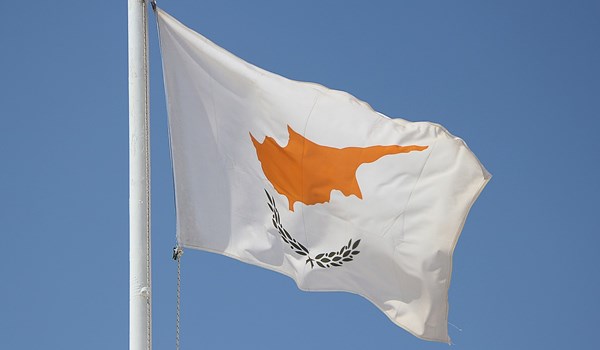he United States and Europe have long disagreed over tax rules affecting trade and investment. Battles between the 1960s and 1990s centered on the taxation of merchandise exports. Between the 2010s and 2020s, battles erupted over the taxation of digital services and corporate profits. In his first week back in the White House, President Donald Trump threatened stiff penalties if Europe implements new taxes on those targets.
VAT Battles. After European countries adopted value-added tax systems (VAT) in the 1960s, US firms argued that the rebate of VAT on exports and the imposition of VAT on imports—together known as border tax adjustments—advantaged European exporters and disadvantaged US exporters. To the disappointment of US firms, the US Treasury refused to impose countervailing duties offsetting the VAT rebate on US imports from Europe. But in 1971, Treasury Under Secretary for Monetary Affairs Paul Volcker spearheaded the creation of a new tax vehicle, the domestic international sales corporation (DISC), which cut in half the corporate profit tax on exports by US firms qualifying for the status.
After marathon legal battles in the General Agreement on Tariffs and Trade (GATT), the United States agreed to phase out the DISC at the close of the Tokyo Round of Multilateral Trade Negotiations (1974–79). In return, the United States secured the consent of the former Europe Community and other GATT members to apply a territorial system to US corporate profits earned on export sales. In other words, akin to the territorial tax systems of Belgium, France, and the Netherlands, the United States would not tax the earnings of foreign corporate subsidiaries of US exporters. A new tax vehicle, the foreign sales corporation (FSC), was created to carry out this design. However, in an erroneous decision (in the view of this author), the World Trade Organization (WTO) dispute settlement body ruled the FSC to be illegal, overturning the quid pro quo of the Tokyo Round bargain. This was the first of many WTO dispute decisions that eventually led the United States to abandon the WTO Appellate Body.
Digital Service Tax Battles. During the Obama administration (2009–17), France and other European countries decided that US tech giants, such as Google and Facebook, were improperly enjoying a tax-free ride on ad revenue linked to their offerings of digital services—video, music, social media—to European consumers. The proposed European remedy, emulated by countries elsewhere, was to apply a digital service tax, calculated as a percentage of global ad revenue attributable to local users of digital services. The proposed remedy would violate both US bilateral tax treaties and WTO trade rules. Nudged by the tech giants, the Obama administration raised the possibility of US penalty tariffs, invoking Section 301 of the Trade Act of 1974, which calls for a US response to discriminatory foreign practices, or tax penalties on companies based in offending foreign countries, here invoking Section 891 of the Internal Revenue Code. However, no DSTs were enacted during the Obama administration and accordingly no tariff or tax penalties were imposed. There the battle rested at the end of the Obama administration.
OECD Tax Pillars. During the first Trump administration (2017–21), at European urging, the Organization for Economic Cooperation and Development (OECD) melded its labors against perceived corporate tax evasion with a scheme to resolve the DST battle. The result, on paper, was the concept of an OECD Tax Pillar One. The core idea was that OECD members would agree that, for huge “consumer facing” multinational corporations (MNCs), a portion of the MNC corporate tax base would be subtracted from the tax jurisdiction of the producing country and added to the tax jurisdiction of the consuming country. This conceptual change would in turn require the wholesale revision of thousands of bilateral tax treaties. The tax base of US tech giants was one target, but other targets, like the French luxury firm LVMH, would depend on the definition of “consumer facing.” Most OECD members agreed to pause their DSTs until January 2026 and repeal them entirely if Pillar One was generally adopted—especially by the United States.
Meanwhile, the OECD continued to refine its attack on perceived corporate tax evasion with Tax Pillar Two. Pillar Two calls for a minimum 15 percent corporate tax on profits in every country where the MNC does business. If the MNC home country does not impose the minimum tax, the host country would be authorized (but not required) to do so. The OECD legal text devoted many paragraphs to defining corporate profits subject to tax and enumerating multiple deductions and exemptions (such as investment tax credits).
As might be expected, the first Trump administration had no love for the OECD Tax Pillars. Nor, for that matter, did the Congress, for the simple reason that Pillar One promised a revenue loss to the US Treasury, while any revenue gain from Pillar Two depended on an uphill legislative battle to raise the US tax rate on the income of foreign subsidiaries of US MNCs.
The Biden administration (2021–25) took a different view. Treasury Secretary Janet Yellen embraced the OECD Tax Pillars, seeing them as complements to the administration ’s thrust to raise the general US corporate tax rate from 21 percent (enacted in Trump’s Tax Cut and Jobs Act of 2017) to 28 percent. But during the Biden administration, Congress discovered no affection for the OECD Tax Pillars or a general rise in the corporate tax rate.
Trump’s Tax Battles. Back in the White House, President Trump quickly denounced the OECD Tax Pillars and, by implication, the imposition of DSTs on US tech giants. Rather than Section 301 penalty tariffs (considered by the Obama administration), Trump raised the threat of Internal Revenue Code Section 891 tax penalties—doubling US taxes on foreign firms or individuals, based in offending countries, who earn income in the United States. At this writing, the European response remains to be seen. One possibility is to shelve the OECD Tax Pillars and DSTs and wait for a new day on the US political scene. Another possibility is unilateral implementation of DSTs and Pillar Two—ensuring a transatlantic tax war. Dramatic days await.



